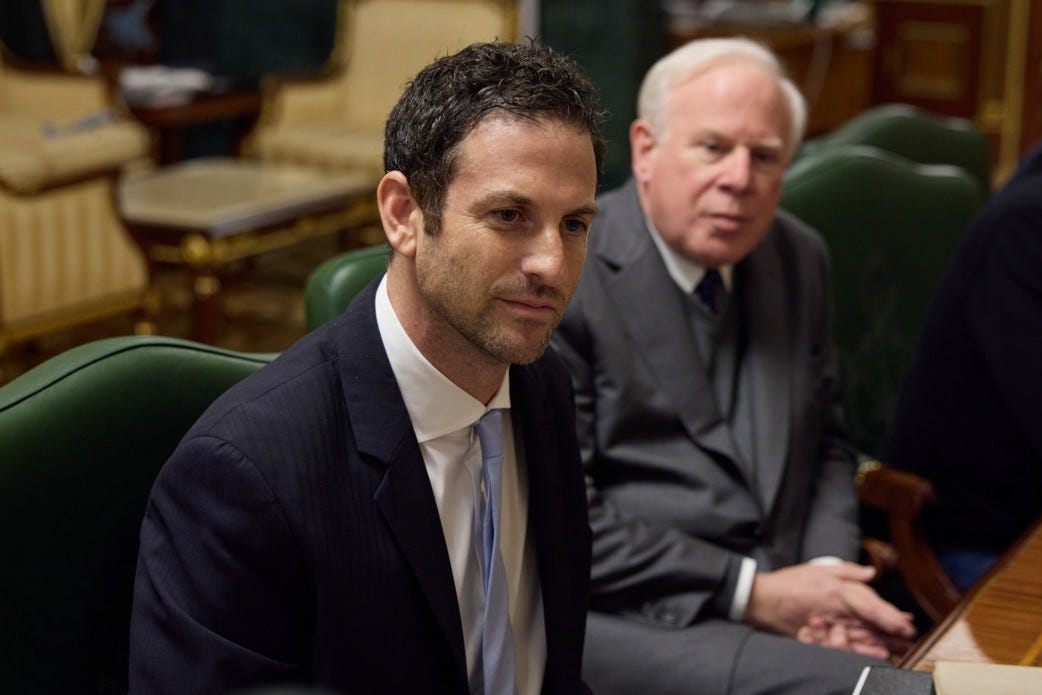
The transformation of Ukraine into untarnished, saintly victim, symbol of democracy and civil society savaged by brutish Russia, has been nothing less than remarkable. The endemic corruption of a state captured by oligarchic tendencies and its own breed of kleptocrats has somehow gone by the wayside, only interrupted by the occasional symbolic purge by the Ukrainian President Volodymyr Zelensky. Lo, before us, the Athenian project writ large in eastern Europe, deserving of protection.
Each arms shipment is made and justified on the basis of Ukraine’s civilizational imperative, proclaimed as not merely European but global. It is a spectacular refit verging on pantomime. But occasionally, a few cracks in the show appear. For one, Zelensky’s desperate effort to make his impoverished and war ravaged country appealing to investors, and who that message is being sold to, is telling.
In his 23 January address to the National Association of State Chambers, the Ukrainian President rubs and massages the US ego with stretchy analogies. He links the creation of a business with defending Ukraine. It seems that fighting and dying in the Ukraine War “is like starting your own business and working day from morning till night, every day, so that one day you can see how your dream is becoming true—when you finally have your own operating business.” (Someone really ought to furnish him with Arthur Miller’s sober corrective Death of a Salesman.)
Ukraine is held out as a receptacle awaiting the joyful stuffing of cash and capital. “We have already managed to attract attention and have cooperation with such giants of the international financial and investment world as Black Rock, J.P. Morgan and Goldman Sachs. Such American brands as Starlink or Westinghouse have already become part of our, Ukrainian, way.”
Zelensky does little to differentiate civilian and military enterprises, though it is clear he would, at this point, prefer the immediate reward of weapons rather than US banking and financial services. These are all part of that anti-democratic continuum that is the military industrial complex. “Your brilliant defence systems—such as HIMARS or Bradleys—are already uniting our history of freedom with your enterprises. We are waiting for Patriots. We are looking closely at Abrams.”
While he calls the Russian effort predatory in nature, he ignores the predatory corporate nature of those companies he praises and embraces. Goldman Sachs has an extensive record of undermining civil society in a number of countries, leaving a trail of unaccountable financial devastation. It remains, to use Matt Taibbi’s famous description, “a great vampire squid wrapped around the face of humanity, relentlessly jamming its blood funnel into anything that smells like money”.
Most recently, its lengthy involvement in the looting of the 1Malaysia Development Berhad (IMDB) led to the conviction of one single junior partner, a lamentable effort suggesting that white collar crime not only pays but pays handsomely.
Dennis M. Kelleher, President and Chief Executive Office of Better Markets, offers a summary that cannot be bettered. “Without Goldman’s imprimatur and management of the private placement of $6.5 billion of bonds in three offerings in less than a year, there would have been no money to launder or loot, no money to bribe, buy votes and corrupt democracy and justice, and no murder of a prosecutor investigating those activities.”
Of that amount, the then Malaysian Prime Minister Najib Razak and his cronies were most grateful, reportedly making off with half the stash. Goldman’s own reward for engineering the entire, jaw dropping steal: $600 million.
These are warnings best heeded in the corridors of Kyiv. But Zelensky is no mood for lessons in US corporate history and its extensive record of global pillaging. Last October, he held a meeting with representatives of the Great Vampire Squid. Goldman Sachs Executive Vice President John Rogers and Co-Head of the Office of Applied Innovation and President of Global Affairs Jared Cohen were on hand to smell out opportunities, blood funnel at the ready. Gullibly, the president told them of his appreciation “when such people are not afraid and come to Ukraine to support us.” Such companies would “bring something new and create jobs for Ukrainians. That is what we need.”
Charmingly, Zelensky wished to convince both Rogers and Cohen that measures were needed to counter the spread of disinformation. Perhaps this was not the strangest briefing: the investment bank is infamous for its own brand of disinformation in cooking the books.
In his National Association of State Chambers address, the Ukrainian president insists that “everyone can become a big business by working with Ukraine”, covering “all sectors—from weapons and defence to construction, from communications to agriculture, from transport to IT, from banks to medicine.” A country weakened and depleted by war is a potential bankster’s playground, offering a chance for cheap pickings, low-cost investment efforts for high returns and minimum regulations to police abuse. And a few lucky politicians can get wealthy along the way too.
Names such as Goldman Sachs and J.P. Morgan, far from being paragons of democracy, malign it. The boardroom member and shareholder are not electors of political representatives, even if they manipulate electoral outcomes and the decisions of governments. Many Ukrainians are in for a nasty surprise.



